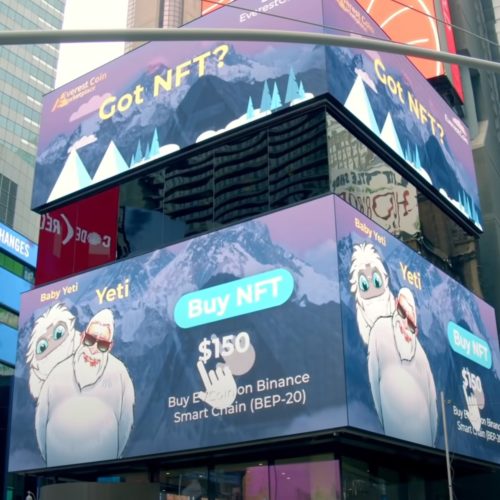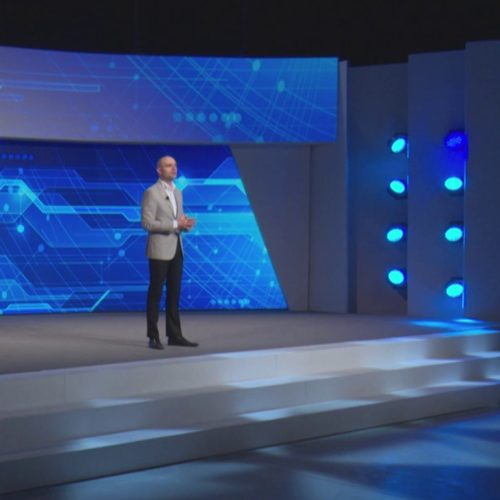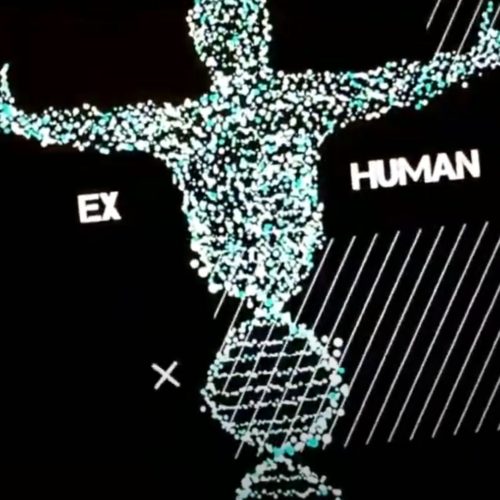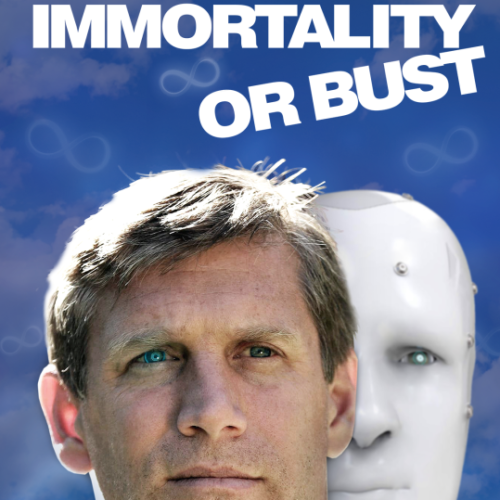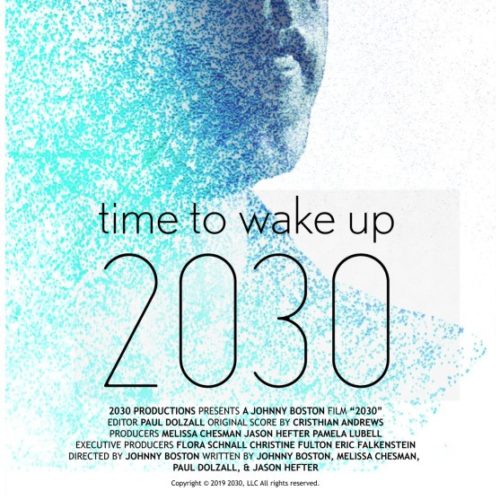Will the “Geek Rapture” Nonsense Ever Stop?
Singularity Utopia / Op Ed
Posted on: October 25, 2011 / Last Modified: October 25, 2011
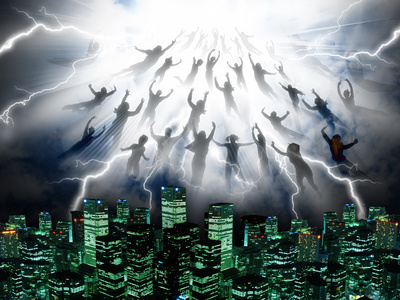 Recently I stumbled across an article about William Gibson’s Geek Rapture and Other Technological Musings. I’m not sure why alleged technological aficionados denigrate the Singularity but I often read about their hostility. It’s an odd situation where their notion of the Singularity is so provocative, so contentious.Some critics insist the Singularity constitutes a new religion for geeks, which is ironic because for me the Singularity is the opposite of religion. Instead of having faith in supernatural powers to create miracles, the Singularity is about having confidence in the powers of humans. Confidence in our human ability entails our skills in science and technology making our world a better place without Godly intervention. The Singularity makes Gods and religions redundant; it is the enlightenment of logic, intellectualism, the end of superstitions, prayers, and mystical incantations.If the Singularity must be categorised philosophically then it should be deemed atheist instead of religious. Via science we will progress beyond the hypothetical omnipotence of God. Instead of an elusive fantasy regarding God’s powers we will create actual real powers based on science not mysticism; we will supersede God’s hypothetical supernatural powers. In the modality of Nietzsche the Singularity will declare God is dead. Building on his “Geek Rapture” hypothesis Gibson claimed cyberspace as quaint. Cyberspace quaint?! I disagree, but I suppose people with quaint minds will transform the most marvellous things into humdrum banality. If Gibson’s partner declared they love William then perhaps from William’s viewpoint he would reply “how quaint.” Maybe when we can live forever, travel freely to any planet, and create any product for free in our own homes, then Gibson will exclaim how fantastic utopia is, but in reality he would probably think immortality, superlative space travel, or Post-Scarcity is terribly boring.
Recently I stumbled across an article about William Gibson’s Geek Rapture and Other Technological Musings. I’m not sure why alleged technological aficionados denigrate the Singularity but I often read about their hostility. It’s an odd situation where their notion of the Singularity is so provocative, so contentious.Some critics insist the Singularity constitutes a new religion for geeks, which is ironic because for me the Singularity is the opposite of religion. Instead of having faith in supernatural powers to create miracles, the Singularity is about having confidence in the powers of humans. Confidence in our human ability entails our skills in science and technology making our world a better place without Godly intervention. The Singularity makes Gods and religions redundant; it is the enlightenment of logic, intellectualism, the end of superstitions, prayers, and mystical incantations.If the Singularity must be categorised philosophically then it should be deemed atheist instead of religious. Via science we will progress beyond the hypothetical omnipotence of God. Instead of an elusive fantasy regarding God’s powers we will create actual real powers based on science not mysticism; we will supersede God’s hypothetical supernatural powers. In the modality of Nietzsche the Singularity will declare God is dead. Building on his “Geek Rapture” hypothesis Gibson claimed cyberspace as quaint. Cyberspace quaint?! I disagree, but I suppose people with quaint minds will transform the most marvellous things into humdrum banality. If Gibson’s partner declared they love William then perhaps from William’s viewpoint he would reply “how quaint.” Maybe when we can live forever, travel freely to any planet, and create any product for free in our own homes, then Gibson will exclaim how fantastic utopia is, but in reality he would probably think immortality, superlative space travel, or Post-Scarcity is terribly boring.
I suppose many Sci-Fi authors feel threatened by the Singularity because the wonder of it easily outstrips their fiction. In April 2010 NASA Administrator Charles Bolden said, “We’re gonna turn science fiction into science fact.” Fiction is becoming reality, this is a fact, therefore the new reality we are entering makes it difficult for some writers to write their tales because reality is becoming vastly superior in comparison to their narrative skills. I think Gibson’s problem is a lack of awareness thus his view of reality is dim. Unfounded criticism of the Singularity tells us more about the perceptions of the person who presents their critique than about the actual concept itself. Intellectual poverty is what causes some to smear the Singularity via religious terminology; such smearing is a sad indictment of predominant irrationality festering within our culture. Application of basic thinking to the notion of the Singularity will quickly reveal how it is an ideology based wholly on logic and rationality. Thankfully, the days of irrational bunkum are ending. The Singularity is an intelligence explosion but some people cling tenaciously to their blinkered view of reality.
With this article I hope all journalists in the future will strenuously endeavour to expose such religious smears for what they are: illogical nonsense devoid of factual basis. There is no logical justification for comparing the Singularity to religion. The Rapture is a Christian event regarding God, whereas the Singularity is based wholly on science.
The fallacious rationale of critics, when they equate the Singularity with religion, hinges on how the Singularity will vastly improve our world. Critics are taking a prejudicial leap of faith, which entails adding two and two thereby creating five. They mistakenly assume technological utopia equates religious paradise. This type of faulty reasoning is comparable to stating: a cheetah is fast and a car is fast therefore a car is a cheetah because they share the commonality of being fast. Technological utopia may be heavenly but it is not heaven. If something makes our world a better place this does not mean it is a religion. Religion has in fact often made our world a worse place due to sexual repression, sexism, religious wars, and persecution of infidels or heretics. Heart transplants can vastly improve the lives of people but heart transplants are not magical miracles preformed by God; it is simply science. The Singularity is science and technology. It is truly amazing intellectualism but sadly the power of intellectualism can be terrifying for some minds.
Contrary to the smears, the Singularity is not quasi-religious geek rapture. It is an insult to be deemed a geek due to my interest in the exponential growth of science and technology. I assure you I am not a geek. The funny thing is that many people probably think all Sci Fi writers are geeks. There’s nothing religious or quasi-religious about the Singularity. The colossal intelligence explosion we are heading towards is the opposite of quaint. It will be far stranger than any fiction.
About the Author:
Singularity Utopia writes for Singularity-2045, a Post-Scarcity orientated website dedicated to increasing awareness regarding the coming technological utopia. The goal is to make the Singularity happen sooner instead of later.
Related articles
- The Geek Rapture and Other Musings of William Gibson | Science Not Fiction (blogs.discovermagazine.com)
- Vernor Vinge and the Technological Singularity (singularitysymposium.com)
- Salim Ismail on Singularity 1 on 1: We Are Already Gods, We Might As Well Start Acting As Such (singularityblog.singularitysymposium.com)
- Sonia Arrison on Singularity 1 on 1: Make Regenerative Medicine A Top Priority (singularityweblog.com)
- Charlie Stross on Singularity 1 on 1: The World is Complicated. Elegant Narratives Explaining Everything Are Wrong! (singularityblog.singularitysymposium.com)



